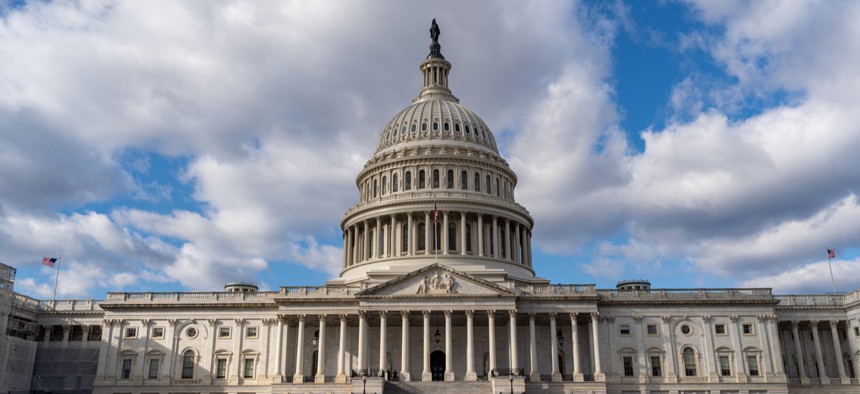House Passes Stopgap Spending Bill Seeking to Avoid Shutdown Through Dec. 11

Charles Toler/Shutterstock.com
After last-minute negotiations, bill receives bipartisan support.
The House passed 359-57 a short-term spending bill on Tuesday, setting the stage to delay a potential shutdown until Dec. 11.
Lawmakers struck a bipartisan agreement on the continuing resolution after negotiations over which “anomalies” to include above fiscal 2020 spending levels. House Democrats had agreed to the Senate Republicans’ demands for the length of the continuing resolution, but delayed a scheduled vote on their stopgap bill after Republicans objected to it. The two sides have since agreed to include relief funds for farmers impacted by the novel coronavirus pandemic and President Trump’s trade disputes in exchange for spending on nutritional programs. Absent congressional action, federal agencies would be forced to close their doors on Oct. 1.
Congressional Democrats and the White House previously agreed to separate spending talks from negotiations over another relief package in response to the novel coronavirus pandemic. They had not agreed to a timeline for the length of the stopgap measure, with Democrats initially looking to push it into February after a potential President Biden would take office. Republicans had been steadfast in insisting the bill last only into December, and Democrats ultimately relented.
The House originally planned to vote on a bill early Tuesday afternoon that would not have included any of the farmers’ relief or nutritional funding. Senate Majority Leader Mitch McConnell, R-Ky., and others voiced their opposition to that measure, however, causing Democrats to shelve their bill and resume negotiations. The House approved its revised bill Tuesday evening with bipartisan support.
The CR is set to include $1.5 billion in funding for the Census Bureau, though it left out a Democratic priority of extending the agency’s deadline to deliver data for its decennial count. It would set restrictions on federal agencies seeking to furlough any employees while the CR is in effect. It would allow U.S. Citizenship and Immigration Services to charge a premium on its fees for certain cases, helping the agency offset the losses it sustained during the pandemic and as a result of Trump administration initiatives. USCIS had notified more than 13,000 employees it planned to furlough them as a result of the budget shortfall, but ultimately walked back that threat.
The measure would give $18 million to the General Services Administration to provide real estate and conduct activities related to the presidential transition. It would also extend contractors’ ability to seek reimbursement for employee sick leave during the pandemic. The Office of Personnel Management, which briefly threatened to furlough employees last year, would receive authority to transfer money from its trust funds to offset losses from turning over background check responsibilities to the Defense Department.
The Senate is expected to send the measure to President Trump for his signature in the coming days. Even with the deal to fund agencies through December, another stopgap measure could become necessary if the lame duck Congress decides to punt on line-by-line funding measures in the weeks immediately following the election. The House has passed 10 of the 12 annual spending bills, but those were agreed to largely without Republican support. The Senate has yet to approve any of its bills, even at the committee level.
NEXT STORY: FCW Insider: Sept. 23






